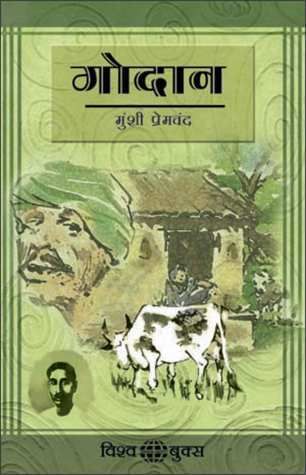Godan by Munshi Premchand: A Timeless Tale of Rural Struggles and Human Resilience

Munshi Premchand's seminal novel, Godan (1936), offers a profound exploration of the myriad challenges faced by rural Indian communities during the pre-independence era. Through the life of its protagonist, Hori Mehto, a poor farmer, the narrative delves into the socio-economic adversities that define the existence of the rural populace.
Economic Exploitation and Debt Trap:
Hori's aspiration to own a cow—a symbol of prosperity and respectability in rural India—sets the stage for his ensuing hardships. Upon acquiring a cow, unforeseen events lead to its death, and Hori finds himself entangled in a web of debts and fines imposed by the village zamindar (landlord). This situation exemplifies the systemic exploitation where peasants are perpetually indebted to moneylenders and landlords, making it nearly impossible for them to achieve financial independence.
Caste-Based Discrimination:
The novel portrays a society deeply entrenched in caste hierarchies. Characters like Datadin, the Brahmin priest, exploit lower-caste villagers through religious sanctions. Hori, representing the peasant class, along with others like Bhola (a cowherd) and Seliya (a cobbler's daughter), navigate a world where their lower caste status subjects them to systemic oppression and social marginalization.
Exploitation of Women:
Premchand sheds light on the gender-based injustices prevalent in rural settings. Female characters such as Dhania (Hori's wife), Jhunia, Seliya, and Roopa face exploitation and societal scorn, often bearing the brunt of patriarchal norms and economic hardships. Their struggles underscore the compounded challenges of gender and class oppression.
Impact of Industrialization and Urban Migration:
The narrative also touches upon the broader socio-economic shifts of the time, including the exploitation of laborers by industrialists and the migration of rural youth to urban centers in search of better opportunities. These dynamics lead to conflicts and a sense of dislocation, further exacerbating the challenges faced by rural communities.
Feudal System and Social Injustice:
At its core, Godan critiques the feudal system that perpetuates the suffering of peasants. The novel advocates for the dismantling of this oppressive structure, highlighting the need for social reforms to alleviate the plight of the rural poor.
In essence, Godan provides a poignant commentary on the socio-economic and cultural challenges that besiege rural India. Through Hori's life and struggles, Premchand encapsulates the enduring human spirit amidst systemic adversity, making the novel a timeless reflection on social justice and human dignity.